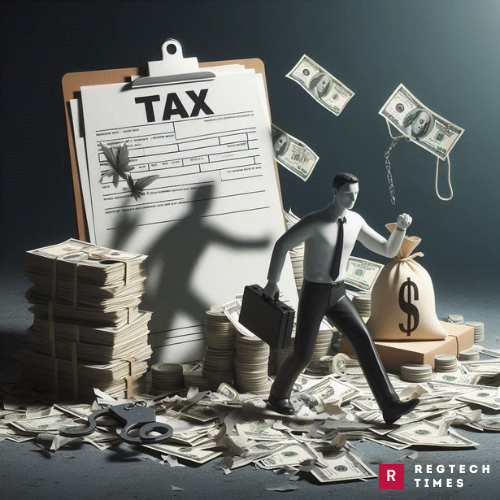In a significant move aimed at curbing tax evasion, the U.S. Department of the Treasury and the Internal Revenue Service (IRS) announced a new regulatory initiative to close a major tax loophole exploited by large, Abusive Related Party Transactions.
This initiative is a crucial part of ongoing efforts to shut down abusive transactions and ensure that wealthy individuals, complex partnerships, and large corporations pay the taxes they owe. IRS and Treasury jointly plans to address these abusive related party transactions.
Addressing the Loophole
The newly released Treasury and IRS guidance marks the beginning of a multi-stage regulatory effort designed to stop large, complex partnerships from using opaque business structures to inflate tax deductions and evade taxes. Treasury estimates that once fully implemented, this initiative could raise over $50 billion in revenue over the next decade, potentially much more, compared to allowing these abusive transactions to continue unchecked.
This new guidance complements the IRS’ ongoing enforcement campaign to recover revenue from large partnerships that are not paying their fair share of taxes. The targeted technique, known as partnership basis shifting transactions, involves a single business operating through many different legal entities (related parties) engaging in transactions that manipulate partnership tax rules to maximize tax deductions and minimize tax liability.
Abusive Related Party Transaction Techniques
These transactions often defy congressional intent, allowing businesses to avoid tax liability with minimal economic consequences. For instance, a partnership might shift tax basis from property that does not generate tax deductions, such as stock or land, to property that does, such as equipment. Wealthy taxpayers and businesses have been paying accountants and lawyers millions to develop these complex, abusive transactions, costing the federal government billions of dollars annually.
Declining Audit Rates
The situation has been exacerbated by severe underfunding of the IRS, leading to plummeting audit rates for these increasingly complex structures. Filings from passthrough businesses with more than $10 million in assets surged by 70 percent, from 174,100 in 2010 to 297,400 in 2019, while the audit rate for these partnerships dropped from 3.8 percent in 2010 to a mere 0.1 percent in 2019.
This combination of fewer resources and more complicated business structures has made it easier for wealthy taxpayers to avoid paying what they owe, contributing to the estimated $160 billion per year tax gap attributed to the top 1 percent of filers.
New Regulations and Enforcement
After more than a year of studying these issues, Treasury and the IRS are announcing their intent to propose regulations to stop abusive related parties in complex partnership structures from shifting the tax basis of their assets amongst each other to take abusive deductions or reduce gains when the asset is sold, effectively making taxable income disappear.
Additionally, the proposal includes increasing the reporting of these transactions which are abusive related party transactions to the IRS and providing a ruling to inform taxpayers that certain transactions will be challenged for lack of economic substance.
IRS AI Surveillance Sparks Transparency and Privacy Concerns
Notice of Proposed Rulemaking (NPRM)
- Treasury and IRS preview two future proposed rules.
- One NPRM will provide mechanical rules under partnership tax provisions to eliminate inappropriate tax benefits created from these abusive related party transactions.
- Another NPRM will apply a single-entity approach to interests in a partnership held by members of a consolidated group to prevent partnership basis shifting amongst members of a consolidated group.
IRS Concludes Dirty Dozen List of 2024
Increased Reporting
- A new NPRM will require taxpayers and their material advisers to report if they are participating in abusive partnership basis shifting transactions.
- This aims to provide the IRS with additional information to better assess the scale and characteristics of the abuse and help direct enforcement resources.
- Reporting will be required for transactions generating $5 million or more of positive basis adjustments in a single tax year where no tax was paid.
Revenue Ruling
- The IRS will issue a ruling that certain abusive related-party partnership transactions involving basis shifting lack economic substance.
- This supports the IRS’ position in current and future audits and litigation that these transactions violate the economic substance doctrine.
Public Engagement
Treasury and the IRS encourage public comments on these proposed rules on stopping the abusive related party transactions and look forward to receiving input from various stakeholders. They will carefully consider these comments before issuing final rules.
Read the treasury press release here
This regulatory initiative represents a critical step towards closing tax loopholes and ensuring that all taxpayers, particularly wealthy individuals and large corporations, contribute their fair share to federal revenues.


